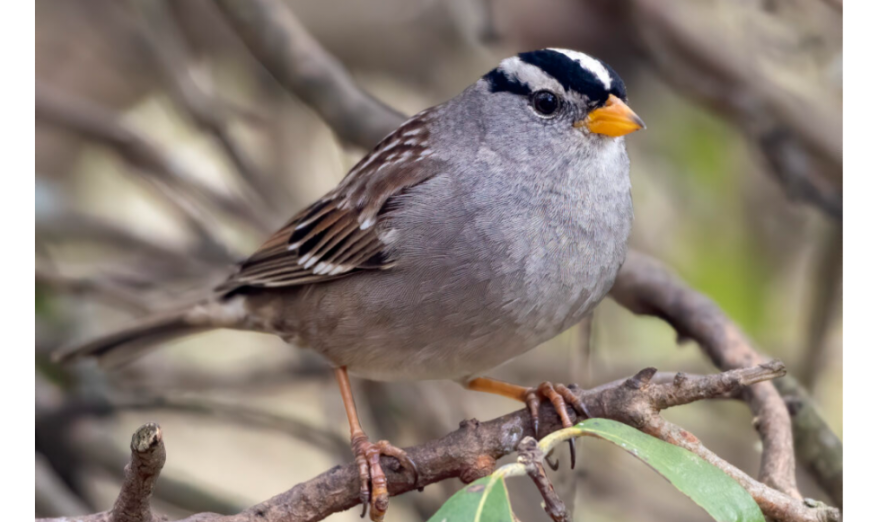July 7, 2023 by Sam Illingworth.
Spring unfurls her green,
lessened by the rush of
dawn’s early touch.
For fledglings in nests
the heartbeat of seasons
once steady and sure
now stutters out of sync,
an arrhythmic pulse
of ill-timed bloom
and hasty retreat.
Time, like a river,
meanders in quiet spaces
leaving fields hushed,
drained of vibrant voice
and trilling song —
a muted echo
of the forest’s former chorus.
In the quieting refrain,
the day is done
and those who lend an ear —
who heed the softening song,
bear witness
to a hopeless
fading plea.

A White-crowned sparrow, one of the birds that featured in this study (Image Credit: Doug Greenberg via Flickr).
This poem is inspired by recent research, which has found that birds raise fewer young when spring arrives earlier in a warming world.
The climate crisis affects our planet in a multitude of ways, some of which might not be immediately obvious. One such subtle but significant impact is on phenology – the study of timing of seasonal biological events such as the flowering of plants or the migration of birds. As the planet warms, the timing of these events can shift. This might not sound like a big problem, but it can create serious issues in the natural world. For instance, if flowers bloom before their pollinators emerge, they may not get pollinated. Similarly, if birds migrate earlier due to warmer weather but the insects they feed on have not yet appeared, they may struggle to find enough food. The problem lies not just in the shifting timings but also in the fact that different species are responding to climate change at different rates, which can throw entire ecosystems out of sync
This new research sheds light on the impact of this issue on bird populations across North America. The study, which is the most extensive of its kind to date, links changes in bird breeding times and the arrival of spring to a decrease in bird populations. Using data from a continent-wide bird-banding program, researchers looked at 41 species of migratory and resident birds. They discovered that there’s an optimal timing for breeding in relation to when the vegetation they rely on ‘greens up’, or comes out of dormancy. If birds breed too early or too late in relation to this green-up, their productivity decreases.
The study also found that even though bird breeding times have been somewhat responsive to changes in green-up, they’re not keeping pace with the rapid shifts brought on by the climate crisis. This is especially true for species that migrate longer distances. These findings suggest that as the climate continues to change, many bird species may face declines in productivity due to a growing disconnect between their breeding cycles and the availability of resources they need to thrive.

